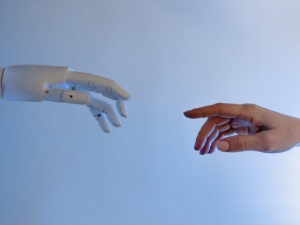

Research Bio
Jodi Halpern. M.D., Ph.D holds a University Chair and is Professor of Bioethics and Medical Humanities at the School of Public Health at UC Berkeley. Her work brings together psychiatry, philosophy, affective forecasting and decision neuroscience to elucidate how people imagine and influence their own and each other's future health possibilities. Her book, From Detached Concern to Empathy: Humanizing Medical Practice was called a “seminal work” by the Journal of the American Medical Association. Her upcoming book Remaking the Self in the Wake of Loss examines the role of empathy in post -traumatic growth. Dr. Halpern's research articles focus on innovative technologies and ethics. She co-founded and is the Co-Director of the Kavli Center for Ethics, Science and the Public and leads the Berkeley Group for the Ethics and Regulation of Innovative Technology. Her current book project "Engineering Empathy" examines how AI-simulated empathy is changing personal and therapeutic relationships. She is engaged in policy, currently in creating guardrails to protect minors from risks associated with companion chatbots. She advised the California Senate on SB 243 which became the first law requiring chatbot companies to collect and report data on associated suicidality. Recent media interviews include NPR, KQED, ABC, PBS, CBC, France 5, Wired, the Wall Street Journal, Rolling Stone, and New Scientist. Halpern is the recipient of numerous fellowships and awards including the Greenwall Faculty Scholars Fellowship, the Rockefeller Fellowship at Princeton and the 2022 Guggenheim Award in Health and Medicine. Halpern’s scholarship investigating empathic curiosity for therapeutic impact and to bridge societal divides is recognized worldwide, and in 2024 she received the Inaugural Lifetime Achievement Award in Empathy and Healthcare from The International Network for Empathy in Healthcare.https://youtu.be/fsn8jyfmsn8
Research Expertise and Interest
AI and ethics, empathy, bioethics, public health
In the News
11 Things UC Berkeley AI Experts Are Watching for in 2026
Dr. Jodi Halpern on Why AI Isn’t a Magic Bullet for Mental Health
Guggenheim Fellowships Awarded to Three UC Berkeley Faculty
How CRISPR Is Changing the Role of Researchers
Can we replace human empathy in healthcare?
Researcher takes on ‘empathy fatigue’ in the workplace
A nurse refuses to help an ailing alcoholic who is upset to find a hospital detox unit closed. A hospital clerk brushes off a deceased woman’s grieving family as they try to pay her bills and claim her belongings. A charge nurse keeps the mother of gunshot victim from seeing her son, saying the emergency room is “too busy.” These harsh, real-life scenarios helped inspire Eve Ekman, a UC Berkeley doctoral student in social welfare, to study empathy burnout in the workplace, a condition expected to skyrocket this year due to the stress caused by the nation’s financial crisis.






